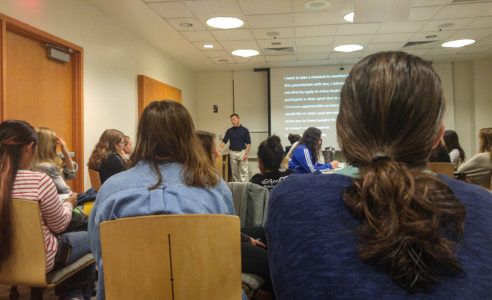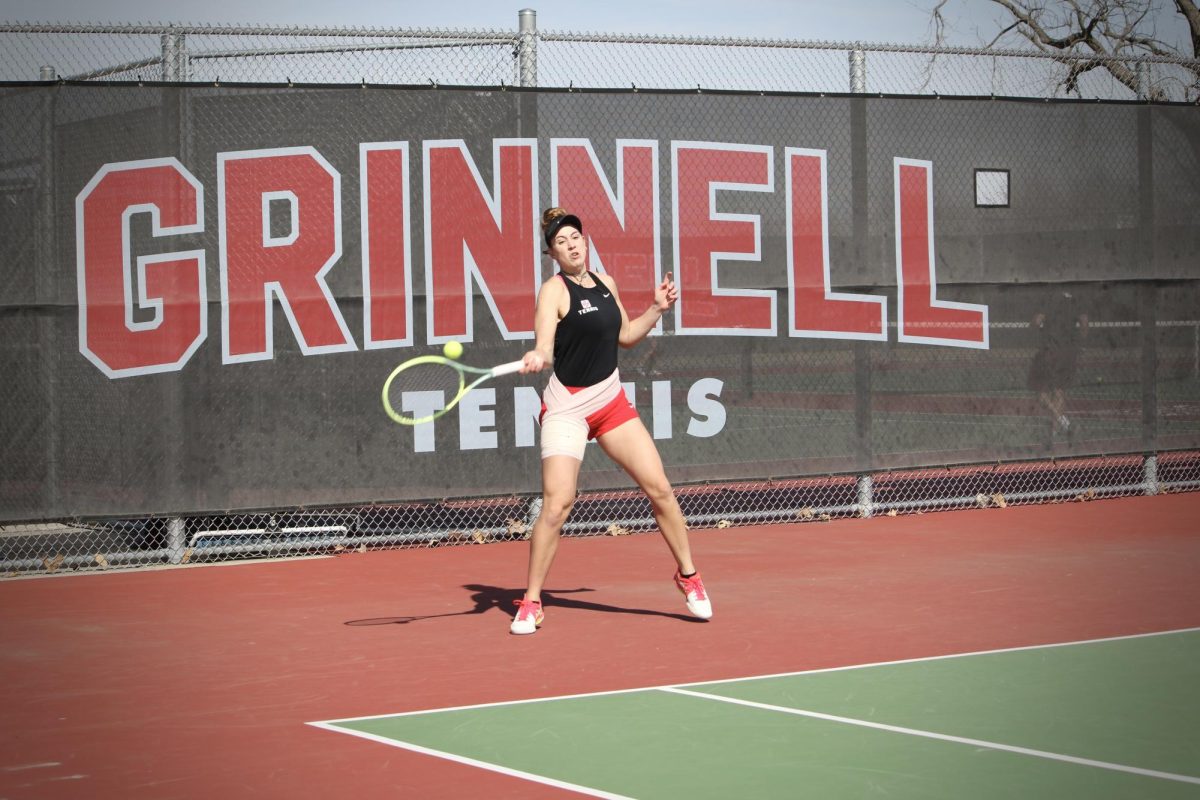By Shabana Gupta
guptasha@grinnell.edu
For many student-athletes, the onset of a serious injury can be as mentally difficult as it is physical. On Monday, Sept. 24 in Joe Rosenfield Center (JRC) 209, Student Health and Counseling Services (SHACS) counselor Thomas Zigo held a talk for students to address this issue. Zigo spoke on debilitating injuries that can end sports careers or put those careers on hold. The room was overflowing, with people bringing in chairs and sitting on tables to hear the presentation. Zigo focused on the resources that injured athletes should take advantage of and how their uninjured teammates can help support them during the difficult time.
While Zigo has worked at SHACS, he also provides services in the Bear Athletic Center once a week, making him more visible to student-athletes. As Zigo himself participated in athletics while in college, he holds a unique perspective on how to manage the pressure that an injury adds to an already overwhelming set of responsibilities.
“I think it’s important as a student-athlete to be able to answer ‘What do I need?’ and ‘From whom?’ This is a very personal issue,” Zigo said in Monday’s presentation.
Zigo played a couple of videos, one that showed an athlete who recovers after an injury, and the other which showed one who does not recover. Both videos had positive tones, demonstrating models of how to keep a stable mood during the recovery process. Zigo also advocated receiving counseling as a part of the recovery process.
In addition to talking, Zigo opened the conversation up to the room multiple times to discuss positive and negative ways of helping an injured teammate, as well as what injured people would prefer in their interactions.
One such coping mechanism that Zigo stressed was relying on others in the face of frustration — it can be comforting for athletes to know that there are other people with similar injuries and that they are not suffering alone. Soccer player Eric Paige ’19 found that having other people chime in with their own experiences helped him overcome his insecurities
“I find few people here who have gone through it to the extent at which I have, and [my injury] has honestly been a very prominent part of my life,” said Paige in an interview with The S&B. “I haven’t really felt like I could mention something like feeling ignored or feeling forgotten — that really resonated with me.”
In addition to feelings of loneliness, athletes noted that frustration, jealousy and anxiety can build up in the body and mind as a result of an injury. Zigo explained that part of this frustration stems from the tendency of student-athletes to depend on their sport to form a significant piece of their identity. If that piece is lost, they go through a crisis.
“It’s important to note ‘I am a person who plays sports, I am not only an athlete.’ How can [you] re-engage and connect with [yourself] in a different way?” Zigo said in the presentation.
One possible coping mechanism some people in the group suggested was to create small, concrete goals that they can reach, so that they can more easily see improvement. Another was to visualize negative energy building up as a specific color and leaving the body.
As far as injury prevention, a few students noted that taking care of their bodies can be more challenging during the off-season, as people do not depend on them to stay in top condition at the time. To combat this risk, several people in the group recognized the importance of eating healthy, sleeping enough and minimizing alcohol intake.
Zigo emphasized that he’s available as a resource to help students cope with whatever challenges they may face, whether injury-related or not.





























































